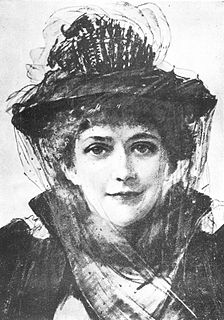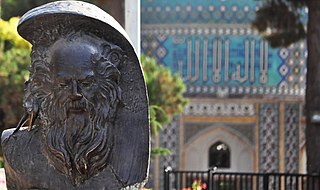A Quote by Elizabeth Barrett Browning
And each man stands with his face in the light. Of his own drawn sword, ready to do what a hero can.
Related Quotes
His face set in grim determination, Richard slogged ahead, his fingers reaching up to touch the tooth under his shirt. Loneliness, deeper than he had never known, sagged his shoulders. All his friends were lost to him. He knew now that his life was not his own. It belonged to his duty, to his task. He was the Seeker. Nothing more. Nothing less. Not his own man, but a pawn to be used by others. A tool, same as his sword, to help others, that they might have the life he had only glimpsed for a twinkling. He was no different from the dark things in the boundary. A bringer of death.
I become more than ever convinced that it was not the sword that won a place for Islam in those days. It was the rigid simplicity, the utter self-effacement of Hussein, the scrupulous regard for pledges, his intense devotion to his friends and followers and his intrepidity, his fearlessness, his absolute trust in God and in his own mission. These and not the sword carried everything before them and surmounted every obstacle.
Emeth came walking forward into the open strip of grass between the bonfire and the Stable. His eyes were shining, his face was solemn, his hand was on his sword-hilt, and he carried his head high. Jill felt like crying when she looked at his face. And Jewel whispered in the King's ear, "By the Lion's Mane, I almost love this young warrior, Calormene though he be. He is worthy of a better god than Tash.
sometimes a man stands up during supper and walks outdoors, and keeps on walking, because of a church that stands somewhere in the East. And his children say blessings on him as if he were dead. And another man, who remains inside his own house, stays there, inside the dishes and in the glasses, so that his children have to go far out into the world toward that same church, which he forgot.
A thousand for his love expired each day, And those who saw his face, in blank dismay Would rave and grieve and mourn their lives away- To die for love of that bewitching sight Was worth a hundred lives without his light. None could survive his absence patiently, None could endure this king's proximity- How strange it was that man could neither brook The presence nor the absence of his look!






































